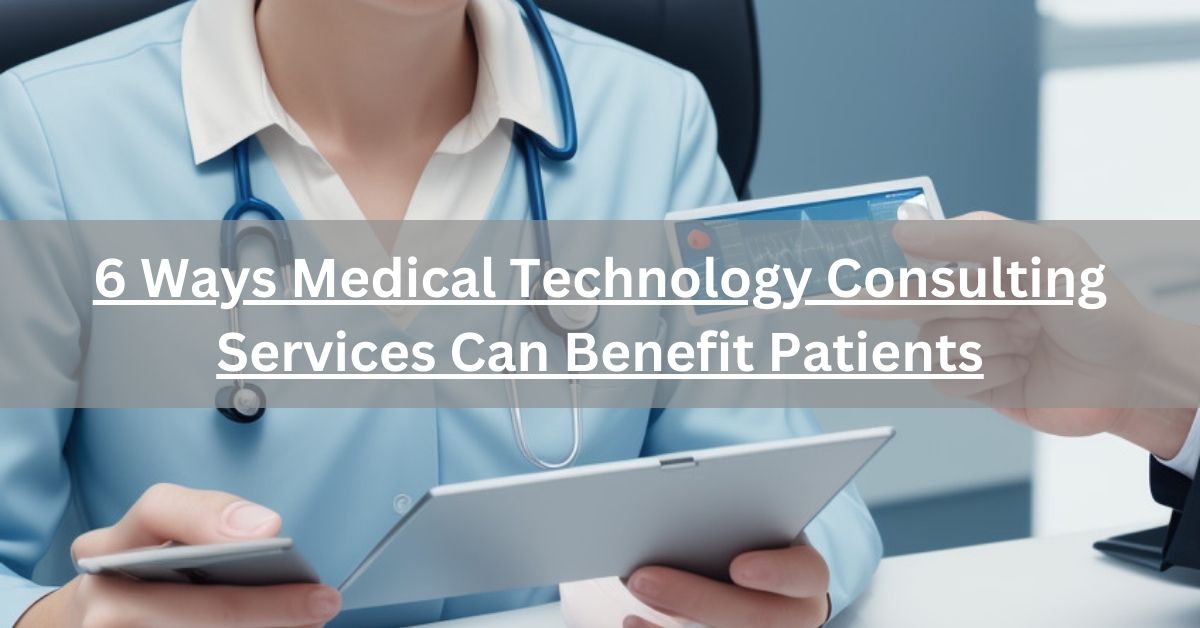Medical technology consultants advise healthcare organizations on selecting, implementing, and optimizing medical technologies. They provide practices with guidance and recommendations to help them improve patient care and safety. Here are six ways medical technology consulting services can benefit practices and patients:
1. Streamlined Workflows and Efficiency
By implementing technology to optimize workflows, consulting services enable healthcare providers to deliver care more efficiently. This efficiency can result in reduced patient wait times. Processes such as appointment scheduling, check-ins, and data entry are improved, allowing medical staff to focus more on patient care. Efficient procedures may also lead to faster diagnosis, as providers spend less time on administrative tasks and more on patient assessments. Each of these aspects contributes to a better in-person patient experience.
2. Improved Access To Advanced Medical Technologies
Consulting services help healthcare providers adopt and integrate the latest medical technologies into their practices. This leads to improved diagnosis, treatment, and management of various medical conditions, benefitting patients by giving them access to state-of-the-art medical care. Having advanced equipment that complements a practice’s specialty enables patients to receive comprehensive care at a single location. Patients visiting the practice can undergo various diagnostic tests and procedures without traveling to multiple facilities or waiting for external referrals.
3. Enhanced Patient Safety
Medical technology consulting services help healthcare practices enhance patient safety, improving their overall quality of care. They provide recommendations for safety protocols and standards related to medical technology usage. This guidance confirms that patients receive care in environments that prioritize safety, reducing the risk of medical errors and adverse events.
4. Personalized Treatment Plans
Professional consulting services develop and implement systems that support personalized medicine. These systems, such as electronic health records (EHRs), allow providers to tailor treatments and interventions to individual patient needs. EHR platforms centralize patient information, including medical histories, diagnoses, medications, and treatment plans. Having this comprehensive data readily available enables healthcare providers to view each patient’s unique health profile. They can use this information to adjust treatment plans, recommend further testing, or manage medications for improved patient care.
5. Coordinated Care
Working with medical technology consultants helps healthcare practices improve patient care coordination and continuity. This is accomplished by implementing EHR systems and other advanced software. These technologies allow providers to share patient data with different physicians, specialists, and hospitals. Each professional will have access to up-to-date and comprehensive patient information through the software. This access can result in more coordinated and informed decision-making across healthcare settings.
6. Remote Monitoring and Telemedicine
With the availability of telemedicine technologies, consulting services play a key role in facilitating virtual care options for patients. This technology benefits patients with chronic conditions or limited mobility, as it enables them to access healthcare services from the comfort of their homes. Professional consultants assist with evaluating and implementing telemedicine solutions that promote preventive care and health maintenance.
Find Reliable Medical Technology Consulting Services
Medical technology consulting services benefit patients by helping practices improve their healthcare processes and systems. They provide various solutions to enhance patient outcomes and care coordination, from EHRs and telemedicine systems to medical imaging equipment and data analytics tools. Contact an experienced healthcare consulting company today to conduct a needs assessment for your practice.
